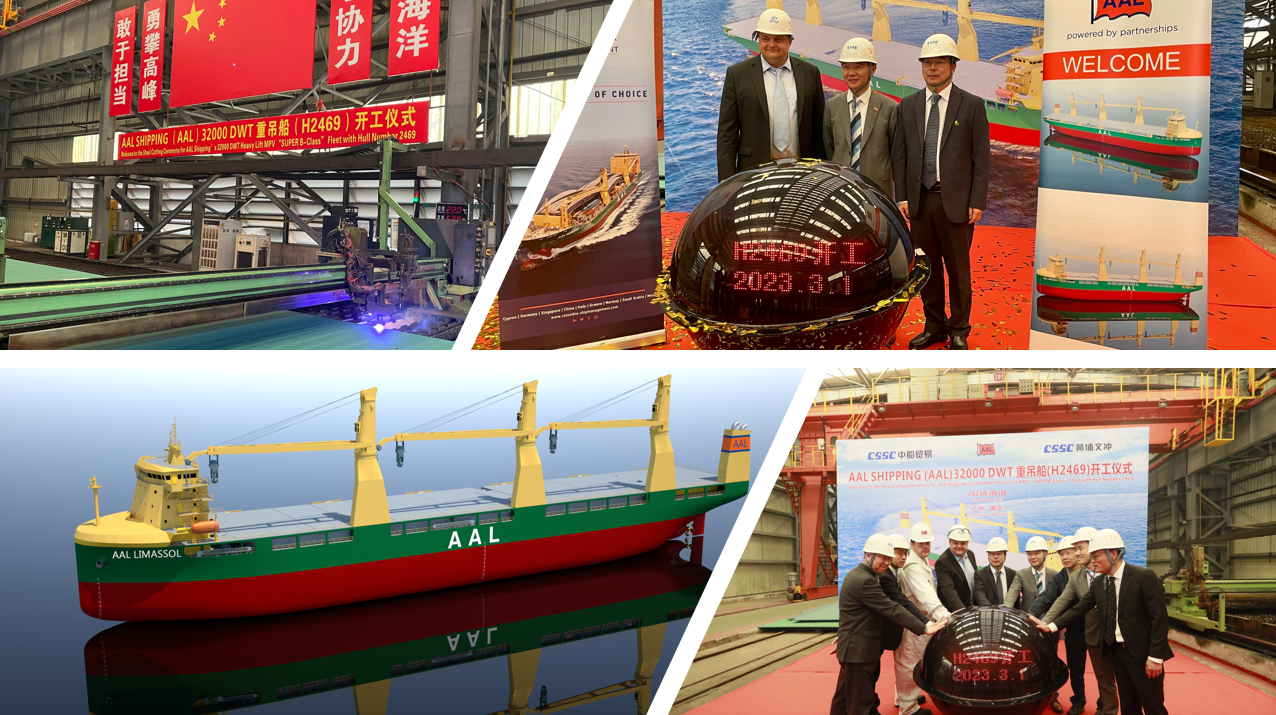Wednesday (Mar 01) at the CSSC Huangpu Wenchong Shipyard in Guangzhou China, a traditional steel cutting ceremony took place for the first of AAL's SIX new Super B-Class 32K DWT heavy lift MPVs, the 'AAL Limassol' – expected in the water 2024.

Representing AAL was Company's General Manager of AAL China, Jack Zhou and representing sister company, Columbia Shipmanagement (CSM), was Project Manager Rangel Vassilev.
AAL new Super B-Class heavy-lift fleet was designed by AAL's own engineers in collaboration with sister company Columbia Shipmanagement and harnesses Company's vast experience in handling project heavy lift, breakbulk and dry bulk commodities around the world since 1995. These ‘mega-size’ vessels are 32,000 deadweight tonnes and measure 179.9 meters in overall length, with a beam of 30 meters. They have a depth of 15.5 meters and feature a low ballast draft of 6.5 meters. Each can carry up to 80,000 freight-tonnes of breakbulk cargo.
The weather deck provides 4,500 square meters of clear cargo loading space, with extendable pontoons available on the starboard side. Three port-mounted heavy lift cranes each support 350 tonnes, with tandem lifting of cranes 1 & 2 and 2 & 3 providing a 700-tonne maximum lift and an outreach of 35.7 meters. This allows to spread cargo loading to the fore and aft of the vessel, optimising stowage space and time.
The forward-positioned bridge and accommodation block delivers unobscured sailing visibility, with no physical restriction on cargo height. Under deck, two large bulk-friendly cargo holds, with tripe-deck facility, measure 68 x 25 and 38 x 25 meters, with a height of 15.6 meters. And - whilst sailing with hatch covers open - can offer extremely tall cargoes safe accommodation.
The Super B-Class vessels are dual fuel compatible - equipped with 7,380-kilowatt main engines and two 1,600 and one 900-kilowatt auxiliary diesel generators. With new ballast water treatment and hull coating technologies, these vessels minimise CO2 emissions and meet all forthcoming IMO regulations.